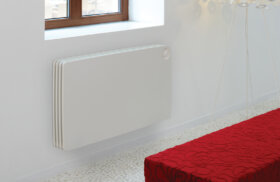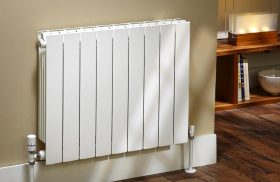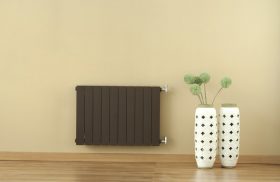Smart technology allows you to control your heating from wherever you are in the world. All you need are a control unit, WiFi and an app on your phone.
For years we have used timers to turn the heating on and off automatically, enabling us to rely on a warm bathroom and hot shower when we get up in the morning and a cosy place to come home to at night. This is all well and good if our lives are run by a strict routine, but that rarely happens in real life. Controlling your heating with a pre-set timer means that if you have to work late in the office or want to go out for an impromptu drink with colleagues, you could be wasting energy and money on heating if no one else is at home.
On the other hand, if you unexpectedly leave work early, you’ll have to wait until you’re home to put the heating on. Or maybe you are going away for a few days in late autumn/early spring – you’ll have to decide whether to leave the heating and water on just in case there’s a cold snap or turn everything off and risk coming home to burst pipes if the weather turns bad. Let’s face it, the weather’s getting stranger all the time, so you could well be sunning yourself on the beach only to read about an unseasonable snowstorm back home.
If you’ve fitted smart technology, none of this will be a problem. As long as you have a signal, you can turn your heating off or on, up or down as necessary. And if you use the smart technology wisely, you will save money on heating bills at the same time as reducing your carbon footprint, without sacrificing having a warm home.
Products and brands
There are many brands of smart technology to choose from. You can buy basic systems that are dedicated heating thermostats for around £200, many of which you could install yourself. Brands to look out for include Nest, Hive, Tado and Netatmo.
The technology is straightforward to use and every model has different features, so always make sure the one you pick has what you need.
Features could include:
- Analysis of your energy consumption
- Email alerts
- Ability to detect when no one is at home and automatically turn off the heating
- Smart radiator valves to create different temperatures in different rooms
- Systems that control underfloor heating
- Systems that also control the hot water
We cannot make recommendations about products, so make sure you read specialist consumer reports as well as customer reviews in order to get the best smart thermostat for your home.





